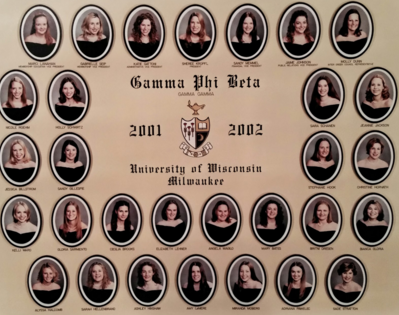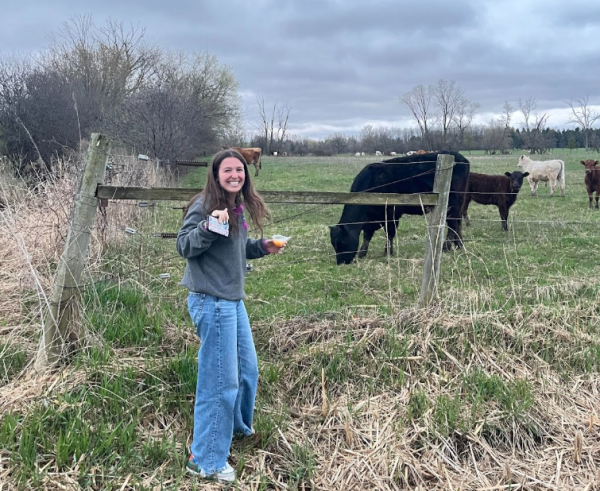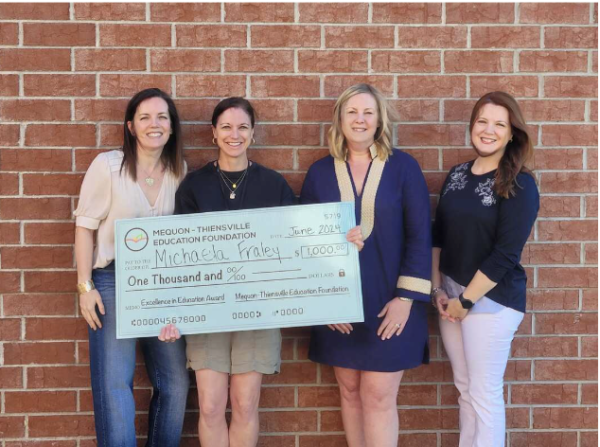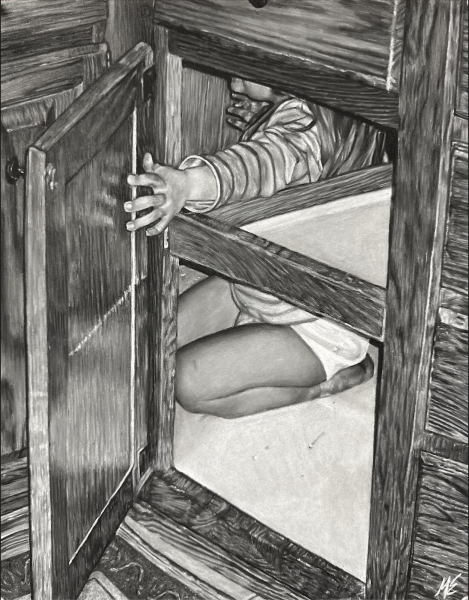Homestead teachers go Greek

Mrs. Nowak’s photo is displayed among her fellow sorority sisters.
For some students, the college search process brings with it a difficult decision: to rush or not to rush? Those who need help making this decision may turn to several Homestead teachers for advice.
Mrs. Katherine Nowak, art teacher and member of Gamma Phi Beta, describes her decision to join a sorority while attending the University of Wisconsin-Milwaukee, saying, “It was such an easy transition; [Gamma Phi Beta] basically found me.” Mrs. Nowak worked her way up in her small sorority through chapter historian to president and attended the weekly mandatory meetings to stay out of “bad standing.” Mrs. Nowak credits her sorority for her public speaking skills as well, saying, “Sororities are a great opportunity for people who shy away from leadership roles.”
Mrs. Suzanne Zellmann, research and digital learning specialist, says she joined the sorority Alpha Delta Phi because “The women had a pretty big emphasis on community service,” and, “It just kind of happened; values just aligned.” Not to mention it was one of the only sororities on the small campus of Ripon College.
A large part of most sororities is philanthropy, and Mrs. Zellmann said one of the reasons she enjoyed her time in Alpha Delta Phi is because she helped raise money with her sorority for the Ronald McDonald House. Also, the local chapter raised and donated money to foundations such as a local women’s shelter. Mrs. Susan Godfrey, physical education teacher and member of Alpha Xi Delta at the University of Wisconsin–La Crosse enjoyed helping to raise money for Autism through her sorority. She says, “I was one of the lead organizers for fundraising. I knew some guys in a band and they played in our union every weekend. Every show was sold out and we made a ton of money for Autism research.”
But sororities are not only for people who want to give back to the community. Mrs. Zellmann, whose sorority was located on the floor of a dorm, liked participating in community service activities as well as the social aspects of a sorority and as she said, “It was more like choosing the girls you wanted to live with.”
“Sororities aren’t for everyone. They do help you manage your time,” Mrs. Godfrey said. She recommends the experience of being in a sorority because, “Today, there are so many different leadership roles you can take and lots of time is spent giving back to the community.
“You never had to worry about going somewhere alone,” Mrs. Nowak said when describing her sorority of only 20 to 40 girls. Even before pledging to the sorority, she already knew many of the girls from her classes.
According to Mrs. Godfrey, “I enjoyed the social aspect of the sorority. We had various formals throughout the year and different activities,” and “we were expected to attend all meetings and functions. We met once a week to plan parties and the philanthropy.”
“Sororities look different on every campus and is about what you think you can get out of it,” Mrs. Zellmann said.

Rebekah Styles is a sophomore who loves to spend her small amount of free time working at a horseback riding barn with her temperamental pony. If she can’t...





student2019 • Feb 25, 2016 at 9:11 am
Great article Rebekah!!!!